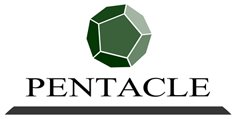Friday, 21 February 2014
What’s it like using QUBE?
To read the first part of this series, click here.
Using QUBE, like anything, takes a short period of adjustment. Dayner Proudfoot, PR and marketing manager, Association for Project Management (APM), takes up the story: "Using a virtual environment can feel a little bit peculiar to start with, but we soon got used to it.
“With the help of a quick but thorough orientation”, adds Proudfoot, “we started to feel that using virtual technology to meet and work together in small groups was a really good and effective way to collaborate.” The consensus was that for a virtual conference to succeed, it needed to be planned virtually. Owain Wilson, Web and Media Manager, APM, agrees: “Regular meetings (we called them ’DrumBeetsTM’) are all absolutely vital to keep the project going – when you meet more regularly, it really helps to keep things moving along.”
A different working environment also throws up different ways of working together, ways that were to prove more effective. QUBE uses tools and techniques designed by Pentacle to make the most of these benefits. The Pentacle tools are described by Proudfoot as: “Light touch, very iterative and fast moving.” One example of these techniques was “Hopes&FearsTM”, in which participants are able to express what they hope will be the outcome of a meeting - and what they honestly fear may result if the meeting goes badly. Too many meetings face-to-face are held in a confrontational format, where a physical presence and entrenched positions can only create feelings of intimidation and victimisation. Expressing hopes and fears, far from bringing unwanted emotions to the table, has the opposite effect in a virtual environment. Rather than reinforcing entrenched positions, it helps participants to realise that perhaps they have a more common agenda than perhaps might have been first realised. Wilson puts it well: “I think ‘Hopes&FearsTM’ produced more relaxed meetings.”
The experience of Pentacle tutors of working in a virtual environment was another crucial factor to more effective planning and meetings. Proudfoot was impressed by the skills of facilitation: “Facilitation in a virtual environment should not be heavy-handed or bureaucratic in any way. At its best, it encourages a mix of opinions, leading to focused decisions in meetings.” And best practice in a virtual environment has beneficial spillover effects in the real world. Wilson argues that Pentacle’s skill in facilitating a virtual environment lies in the way they develop conversations where people are not physically in each other’s presence: “It feels a bit like a magic recipe for pastry. All the ingredients are jumbled up in a way no one has ever tried. We make mistakes along the way but somehow what comes out tastes delicious. And in the process we learn together and laugh together.”
Next week: using QUBE as the conference approaches.
Subscribe to:
Post Comments (Atom)

.svg/2000px-My_Wife_and_My_Mother-In-Law_(Hill).svg.png)





No comments:
Post a Comment